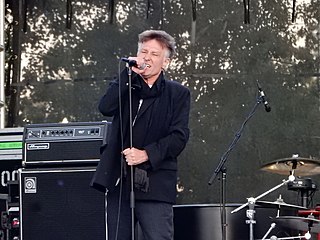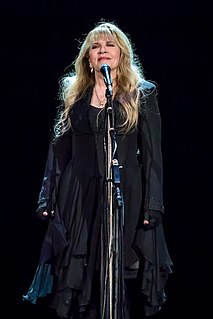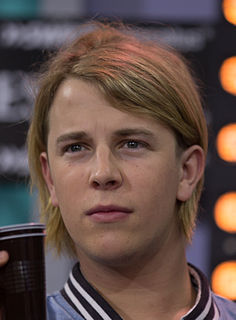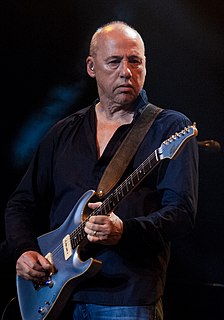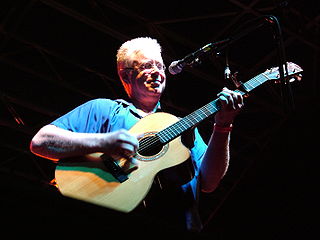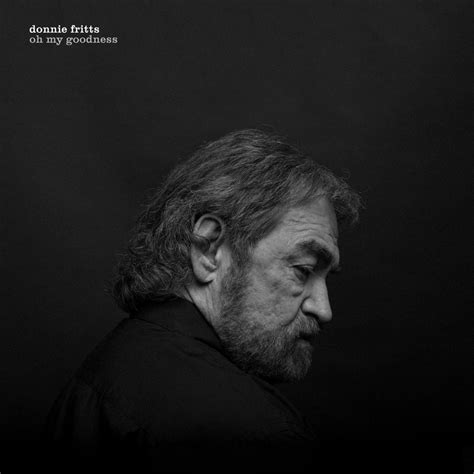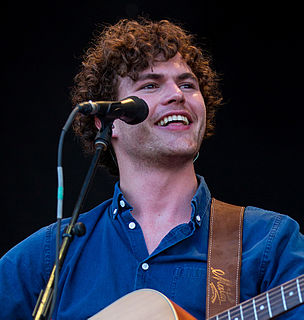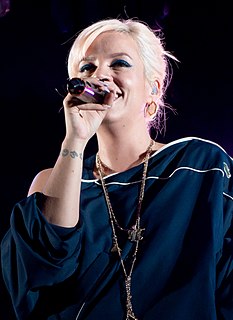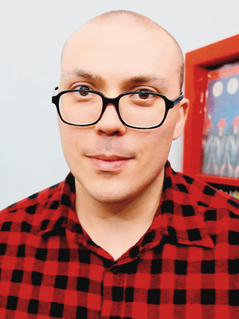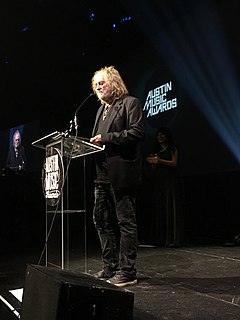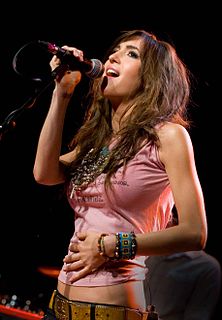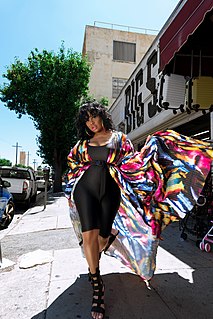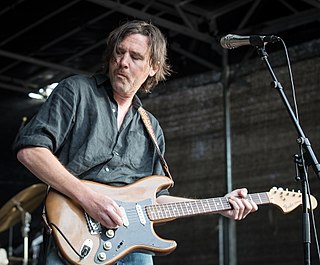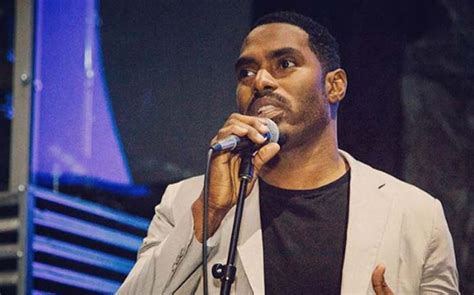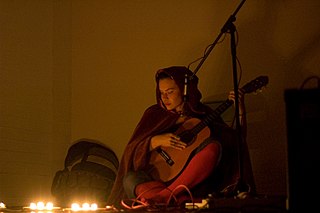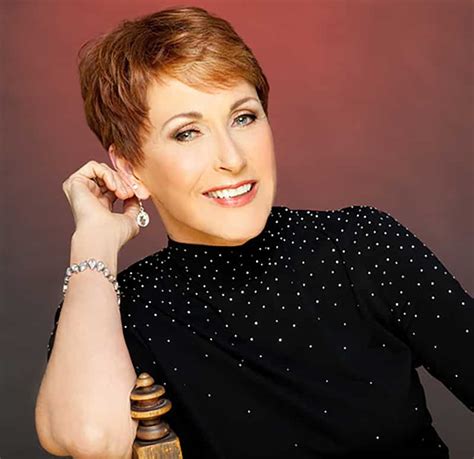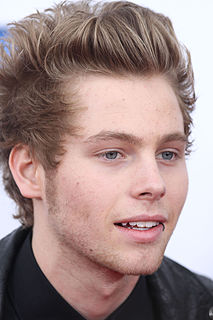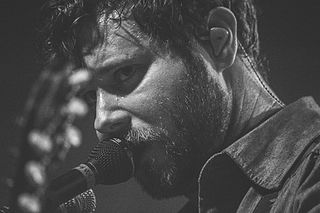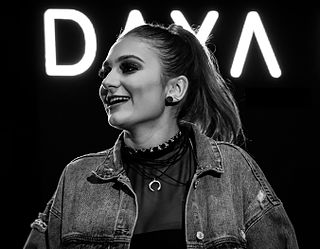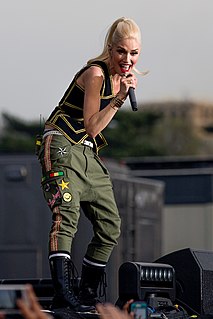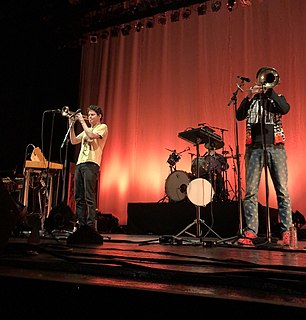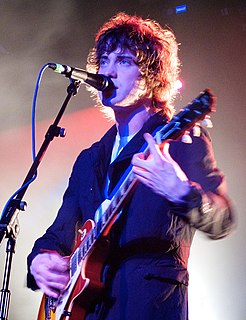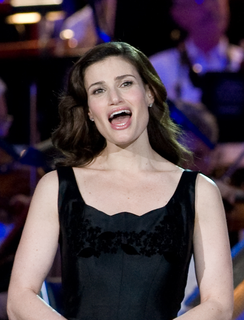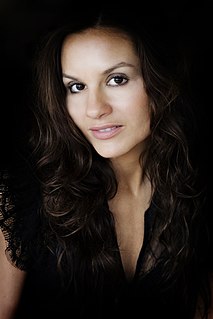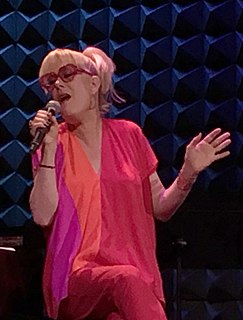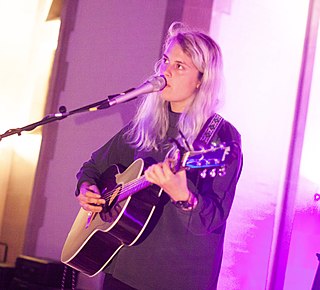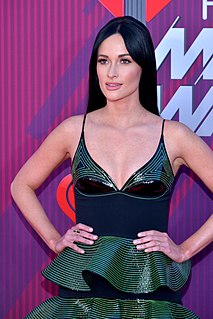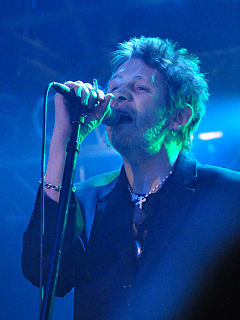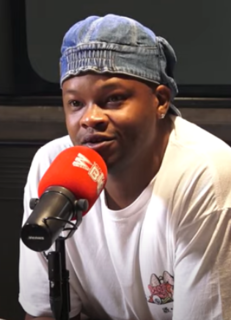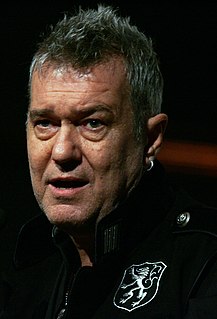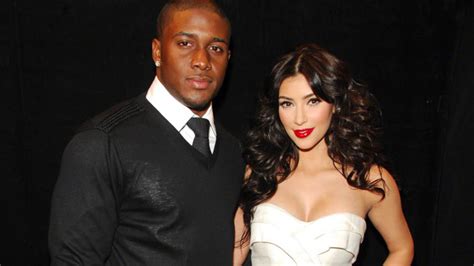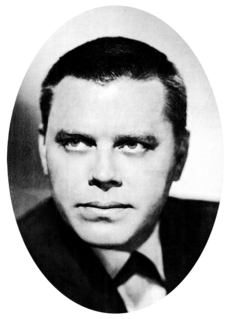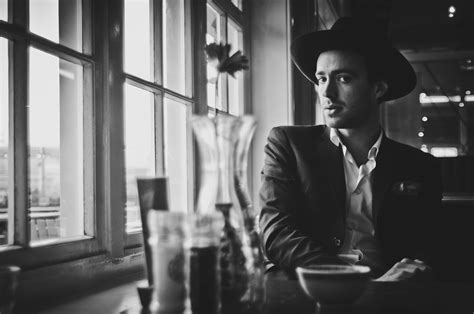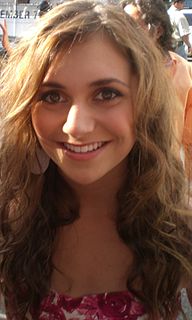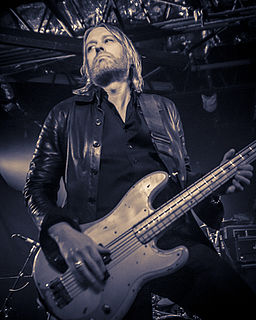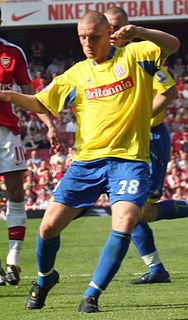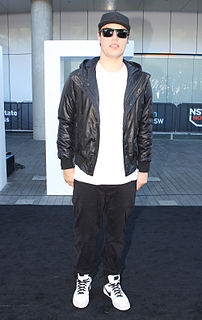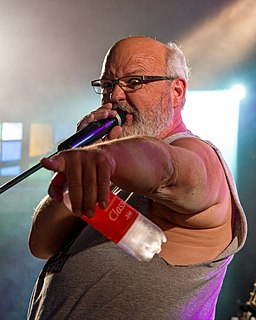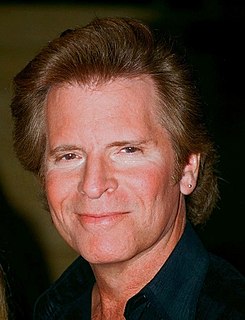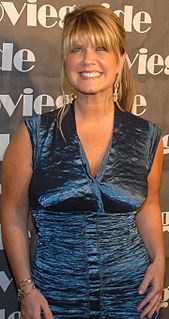Top 773 Songwriting Quotes & Sayings - Page 12
Explore popular Songwriting quotes.
Last updated on December 22, 2024.
Songs, and songwriting keeps me inspired, moving forward. I tend to scribble down notes, lyrics or just random thoughts on pieces of paper, backs of cigarette packs, sometimes on my shirt cuff. Rock n’ roll is closest thing I’ve got to a spiritual power. It’s been the higher voice in my life and it’s never let me down.
I'm from the generation that's always been recording, from the very beginning. I learned to play the guitar on the four-track. I started listening to music at a time when people were doing recording at home, when the discussion about songwriting correlated to the discussion about producing and engineering. I think that's a description of my generation.
I grew up producing hip-hop music, actually. I was producing for my friends, who were all rappers in upstate New York, where I'm from. But in the eighth grade, we had this songwriting contest in our school, and I got really excited about it and actually won. After that, I just kept making music forever.
I blame it [never taking a break] on my mother. She was a born entertainer. Leave the songwriting, the singing and all that behind, and I still would have found some way to be an entertainer. I would have never been an actress, though, because I realized early in my life, in like sixth grade, I was a terrible actress.
When I was around 13 or 14, I started getting really into songwriting. And one day, I was rooting through my mum's old tapes and records, and I found 'Grace' by Jeff Buckley. I remember so vividly the first time I put it on. It blew my mind: his voice, the way he could play the guitar. I must have listened to the album over and over for weeks.
Sometimes I catch myself doing something that I've already done. The more I've done, the more that's likely to happen. Then I just throw it away. I wait until I've got the right way of getting a thing done, which means my songwriting proceeds at a very slow pace. But it's the only way I can really work.
I went to visit a friend of mine, a writer name Troy Seal, a songwriting fool. He's had a ton of hits. He said, "I've got a thing I'm stuck on." ?I can hear the wind a blowin' - he already had that. You and me lord, we had it all. ?He only had that first verse. For some reason he was stuck. But that's how that came about.
Most songwriting like poetry takes a careful selection of words. Sometimes you're just channeling something and a selection of words come out that you wouldn't normally say, but you come up with an assortment of words that are really special. It just makes sense even if it's normally how you wouldn't express yourself.
I'm not good at many things. But I really like songwriting, and I get a good reaction from it. There's not much that I do that causes a good reaction, so it feels like if I want to have good things happen, then I should do the things I'm good at. I mean, in all seriousness, I left school at 15. I'm unqualified to do anything else.
Songwriting is ... all about intuition - this thing pops into your head for a reason and it's up to you to follow it. It's like there's a spirit, or intuitive network, that comes through all of us, but most people don't take the time to think about it or remember it. These little things pop into our heads - it's just a process of intuition. The initial thought comes in a baby state, and you work on that some more.
After a casual listen, it might be easy to lump Rocky Votolato in with the downtrodden likes of Conor Oberst and Elliott Smith. But his songwriting is a bit more triumphant than theirs: Votolato would rather pull himself out of a gutter than wallow in it, focusing instead on the victory before the misery.
Before I went on stage at Kyle Hutton's Real Life Real Music Festival, I heard one of his songwriting students, Abbey Hirvela, sing; she was in the poet's saddle and riding that horse like she owned it. She was good! I probably ruined her by showing her how to make an E chord without the 3rd though.
I'm finding that writing poetry is strengthening my songwriting, because you're learning to make a piece of writing work on a page with nothing else. I was also finding within poetry I felt a lot more free to write about very different matters, to write about social issues or things that are going on around me.
I started playing guitar and writing songs when I was 15. I think what mainly sparked my interest was just the fact that I grew up listening to Cheryl King, Joni Mitchell, and James Taylor, and was just always inspired by that sort of organic art, and organic songs and just very natural songwriting that came out of some of those artists.
I really like and singing, and songwriting and producing. It depends on the song and the mood and who I'm working with, what the song is about and where it came from, any number of things affect the levels of creativity. I try not to do too much delineating with my art. Really, it's art, so for me I don't have a most, I just really enjoy my entire process.
Certainly, writing a book was challenging. It took me a long time to learn how to do it. It took me seven years to get a sense of how to wean myself off the process and trickery of songwriting. You realize that giant metaphors work in songs because you have so few words. Standing alone on a page, they threaten to be overblown in a hurry.
I can't draw. But I can draw with sound. That's the most useful thing I learned in terms of what my craft is... The arrangements were mine. They were little lines and stuff that I had written myself... And I was locked into this idea that vocals didn't count, melodies didn't count, songwriting craftsmanship didn't count. The only thing that counted was high arching guitar solos...
Songwriting ability is a gift. After a while, you come to realize, "I've really been blessed. I can write these things and it makes me happy, and it makes millions of people happy." It's an obligation, it's bigger than you. It's the only true magic I know. It's not pulling a rabbit out of a hat; it's real. It's your soul floating out to theirs.
I mean, just like every other prominent songwriter or producer, you have the shot. You send in records and if they make it, they make it. If they get heard, they get heard. I'm not sure if you know how that circle of songwriting and producing works, but every time a big artist is working, everybody and their mother is in the studio writing records to try to get on it.
I remember reading a book that was on songwriting at some point that I found in my dad's store, and just... I did not relate at all. I've always hated structure of all kinds, it just doesn't work for me. I can never fit into the schedules of other people. It's like putting a schedule on your song, and it doesn't allow you to be moved by your own music.
I was invited to L.A. when I was 16 for a weekend-long songwriting session by a writer I had met through my voice teacher in Pittsburgh. My first hit, 'Hide Away,' was one of the songs written during those sessions. It was played for a radio rep who then started a new label; the song got a pretty organic start at radio and then took off.
I think after doing Push and Shove and having it not be successful, I lost a lot of confidence. Songwriting, for me, has always been traumatic, and I've always made all these excuses. But I've realized that you have to just accept that it was a gift: "I don't know where it came from, I don't know how I did it, but I did write all those songs, and I gotta do it again."
What excites me about a lot of the artists I love - and I realize, well, they created their own personal world that I could enter into through their music and through their songwriting. There's people that can do it instrumentally, like Jimi Hendrix or Edge of U2 or Pete Townshend. I didn't have as unique - a purely musical signature. I was a creature of a lot of different influences.
I became very aware of what I was used to relying on, almost tricks. It's funny because I could feel myself creating a formula and sticking with it and I just told myself, 'That's not me, that's not really how I am, god forbid I have developed a formula - it's music; songwriting.' It's heretic, honestly, in the church of music, so I had to unwind a few tricks in order to get past it.
That's what I love about songwriting - that you can write something about your own experiences and think it's completely specific to you, and then people can take away a completely different meaning for themselves. I really love that. I think you've been successful at writing a song when it has a larger life than yourself.
I think Bruno Mars is a great example of a great voice and classic songwriting with a twist that makes it contemporary. I think he's done a great job of it. I think Katy Perry has undeniable songs for what she does, for that pop market. And, if we're talking in the truly pop market, I would say those two.
If you are in NYC and you only do one thing culturally go and see Carol Lipnik at Pangea. If you love music and appreciate great songwriting and singing, if you came to NYC to experience magical happenings in tiny rooms that could never happen anyplace else in the world, if you dreamed of intimate nights surrounded by smart, talented, interesting people, this is what you're here for.
Now DON'T MISS IT!!!!
We have this really retro vibe and style of songwriting and, personally, I wasn't embracing the current state of music until I fell in love with hip-hop. It felt good to suddenly embrace where music was headed, and I think hip-hop is the best at that, because it feels so progressive and everybody wants to be the best.
I feel like the inspiration is that I've managed to change my songwriting over the past couple of years and also production styles. I could get a sense of what really worked well, and I think this sound developed naturally. That's what happens when you're doing it all the time and changing as a person. Some songs were really dark, and others were more psychedelic. It was useful to have that to figure out exactly what I wanted to do.
Obviously I've always loved singing and performing, but I fell in love with songwriting and then I enjoyed doing that for other people and getting coached. But then I kind of stumbled into the right group of people that really started to create some unique music for me and what I wanted to say, so then it made me want to be an artist.
Most songs I write are spur-of-the-moment-type things. I have to be spontaneous. If not, songwriting can bore me. There is no pre-design or idea of what I am going to do when I go into the studio. It's all like that for me. I could go in and write two or three songs in an eight-hour session. You can't over-think songs. You just can't.
There are some concerns that are universal. Everyone wants to be loved, and everyone wants to feel like they belong somewhere in the world. Everyone wants to do something and feel like they have a sense of purpose. These are just the things that I think about and the things that make their way into my songwriting.
I sat in on some songwriting classes, and it was really bloody hard, a lot of music theory. I'd be sitting there, and they'd be talking all this music theory, and the teacher would say, 'Let's ask our guest Jimmy what he thinks,' and I'd be sitting there thinking, 'Please don't ask me, please don't ask me.'
The more people who come from musical backgrounds and go into promotion, production, songwriting, A&R, plus get their business head together, the better. They'll not only understand the business aspect, they'll also have a true passion and ear for how quality is represented musically. Plus consumers will always have a hunger for R&B music.
I think the nature of songwriters is that they are philosophers, and philosophers have a bent towards poetry and songwriting, so I think that the two run around together. The nature of a songwriter could be philosophical. Looking for universal ideas, a way to say things, get the story across as a means of entertaining, provoking thought.
I don't really premeditate what I write my songs about; you know, they just kind of happen, and I can't start writing songs to please a certain group of people or propagate a certain message all the time. That's just not how my songwriting works - it just sort of comes out, and the songs are what they are.
When I was young I wanted to make films and then I got into folk music when I was about 12, and started going to this folk club in Auckland. My dad [Barry Andrews] was in punk and post-punk bands, so I guess it was a side of music I hadn't really listened to before - the really narrative form of songwriting.
Being a perfectionist, I didn't want to settle for just getting by, so I enrolled in a vocal training program. I then learned that songwriting and studying the voice actually pair with a lot of troubles that I had expressing myself, being vulnerable, trusting other people, trusting myself, calming anxiety. It became a life instructor of sorts and that is what kept me engaged with it.
Wherever inspiration comes from, it's like I'll hear a melody and chords, almost a rough structure of the whole thing [song]. I'll just hear it and chase what's in my head. The rest comes from jamming with band, improvising, seeing what comes up as well. I'll come up with it off the top of my head, catch it, sing and hum, and if something is missing, just jam, and that's the [songwriting] process.
I started just concentrating on songwriting when I was abut 20; I'd been in rock bands six or seven years, kinda got that out of my system, I said, "ok, you ain't gonna be a rock star, you don't look like a rock star, it probably ain't gonna happen. So what you should do is write songs and maybe other people will do your songs."
I had to really do some studying and examination of my own songwriting and I realized that, there's not a formula by any stretch of the imagination and aren't any rules, but there are principles. The first one is that art is a process, not a product. In fact, that holds true for damn near everything we do in life. The product is just something that happens. If you're faithful to the process, the product takes care of itself.
There are a lot of new sounds I've gone for, which I may not have been ready to go for in the past, especially moving away from just rapping. I really tried to push my songwriting side on this one. I think that, for better or worse, people have definitely been able to tell. Changing style is always gonna be a love/hate thing for people, but I love it all, and I can't please everyone so that's all that matters.
I bought a Three Dog Night album when I was pretty young, and I remember listening to all those songs. That's just greatly crafted songwriting, and the songs have such great harmonies. I remember marveling over those and trying to figure them out on piano. That was my early education - figuring out records, older records, as a kid.
I feel happy about the songs I've written. I'm a great lover of the craft of songwriting, and I sure admire it in other people when I see it - past and present. I feel comfortable with what I have accomplished. I feel happy to be able to work in that environment, and that I have a lot of songs left to be written, somewhere.
